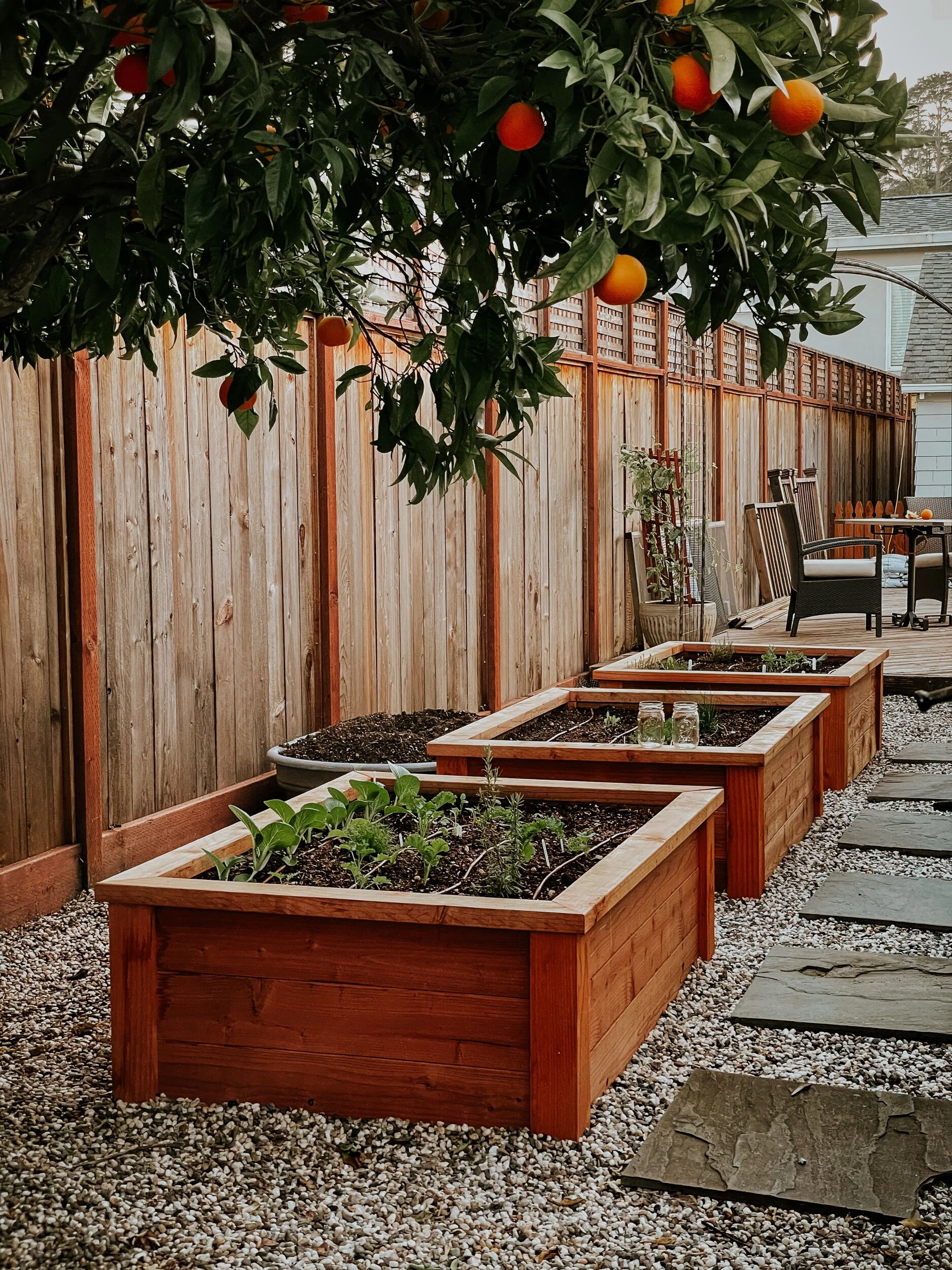Building Our First Vegetable Garden Planters
We decided to start a little vegetable garden at home this year. Starting in early January, we’ve been selecting and germinating seeds, learning about soil compositions, designing our own planters, and planning out our garden space. I’ll focus on the planters in this post.
We used these Redwood construction heart wood for the planter boxes from Home Depot. It’s the most economical Redwood grade that is still rot resistant. This was a great resource for us when we were learning about the different types of Redwood lumber. Basically, the closer to the heart, the more rot resistant, but also the more expensive.
We drew up the design in CAD first and created a spreadsheet with lumber dimensions and costs as a tool for optimizing the design aesthetics with overall budget. This made it easier for us to determine whether to go with 2x4, 2x6, 2x8, 2x10, etc.
We cut everything to length using our miter saw, which we absolutely love from DeWalt:
For connections between planks, we used pocket holes so no screws would be visible in the final planter. You can buy one of these jigs online or pick up at your local hardware store. We purchased Kreg Blue Kote screws in hopes they’d last longer over time. They’re also cheaper than the stainless ones.
After all the cutting and drilling, we screwed individual planks together to create the sidewalls and then used clamps to align the walls before assembling the full box.
Soil composition is another important factor in vegetable gardening. After reading some guides online for the produce we were planning on growing, we purchased different soils and compost to create our own mixture. We found this guide and comparison of mixtures from Journey with Jill super helpful.
We also re-purposed much of the soil mixture from the previous planter that was here:
As the weather starts to get a little warmer and the days longer, our vegetables are growing larger. It’s always exciting to see new sprouts, especially if they were directly sown into the soil. As of today, we’ve harvested snow pea leaves, several rounds of bok choy, and are looking forward to many others.
Hope you found this post helpful!







